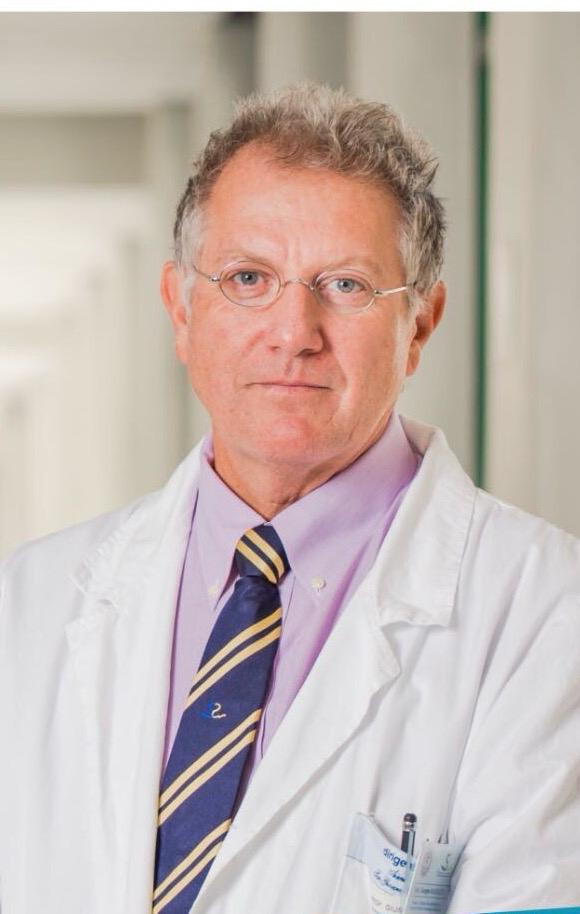
University of Turin
Games Experience:
University Hospital
A.O.U. Città della salute e della Scienza di Torino
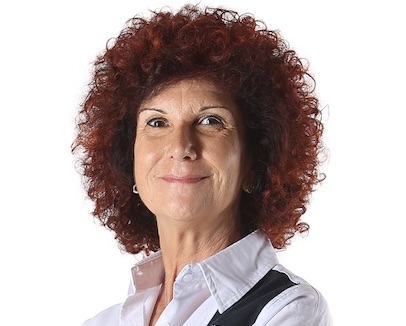
Member of:
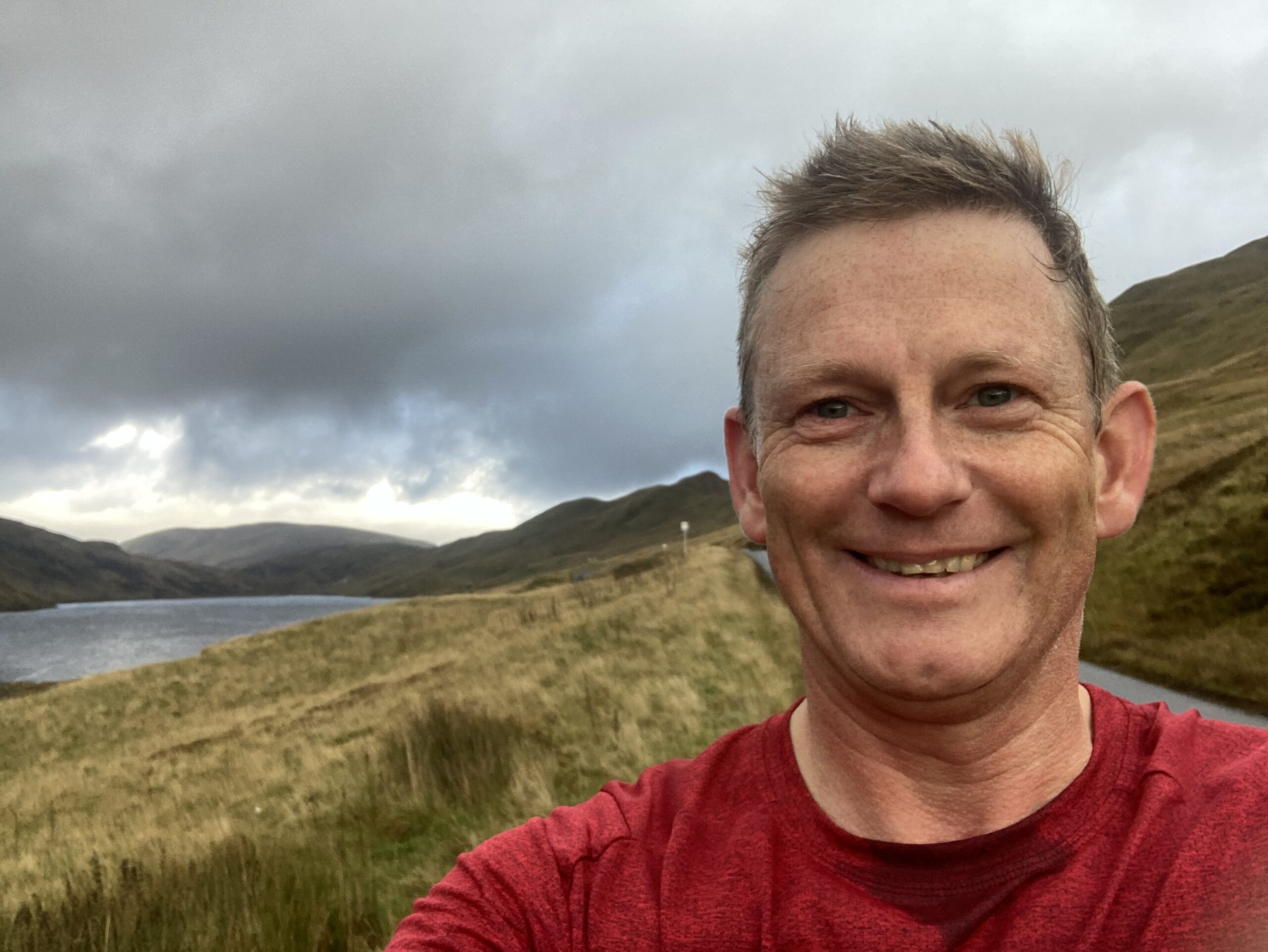
Mike Carmont specialses in foot & ankle surgery and sports trauma to the ankle, particularly Achilles tendon rupture.
After undergraduate training at the University of Newcastle-upon-Tyne and Specialist Registrar training on the Oswestry/Stoke rotation, he completed Fellowships Training in Foot & Ankle Surgery at the Northern General Hospital Sheffield and Sports Knee surgery with Tim Spalding. He started as a Consultant at Shrewsbury & Telford Hospital NHS Trust in 2009.
He has since completed a PhD in Achilles tendon ruptures at the University of Gothenburg and Achilles tendon and other sports injuries are his main area of interest.
He is a past President of the British Orthopaedic Sports Trauma and Arthroscopy Association and has been awarded 3 international traveling Fellowships bringing techniques from all over the world into his practice.
He currently provides individualized patient care based on the scientific literature and outcomes from patients he has managed.
In Sport and Exercise Medicine he is a team doctor for a Premiership Rugby Union Club and has been Chief Medical Officer for the Great Britain team at the Winter University Games since 2019.


Professor Engebretsen is currently the Professor Emeritus of the Department of Orthopedic Surgery at Oslo University Clinic and Head of Medical Sciences in the International Olympic Committee. Professor Engebretsen has published over 500 articles and book chapters, with a citation index (H-index) of 118. He is among the world’s most productive in clinical, epidemiological and basic science research in the areas of general sports medicine, knee ligaments, cartilage and prevention of sports injuries and illnesses. He has received research grants and awards from many agencies and associations, including the National Institutes of Health, the Norwegian Council for Research in Science and Humanities, the Norwegian Ministry of Health, the American Orthopedic Society of Sports Medicine (AOSSM) and the International Olympic Committee. He and his group have won several research awards around the world, and he was inducted into the AOSSM Hall of Fame in July 2015 and became an ESSKA Honorary member in 2016 and ISAKOS Honorary member in 2017 and EFFORT Honorary member in 2022. He received the Nordic Prize in Medicine in 2016.
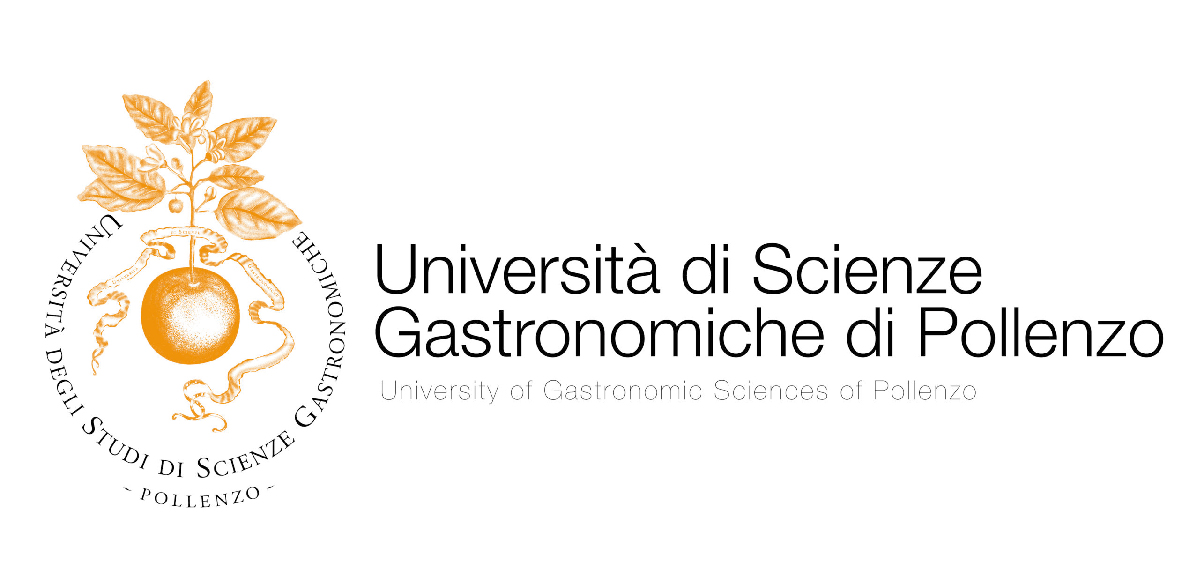
The contemporary world is characterised by a plethora of consumer stimuli and an unprecedented diversity and richness of foodstuffs.
Nevertheless, when faced with an unprecedented number of informative labels, consumers often prefer to use shortcut heuristics. While food is the foundation of nutrition, the context of consumption and the environment in which it is received play a fundamental role in its appreciation. Food trends, with their periodic cyclical condemnation of specific foods or nutrients, followed by their inevitable rehabilitation, gives rise to pervasive uncertainty and guidance. The neophobia of minors, coupled with inadequate nutritional education and the monotony of meals at home, results in significant issues of satisfaction and reduced waste in school canteens. These factors are examined in depth to underscore the crucial need for food education to prevent long-term health complications, particularly among younger consumers.

Sustainability is a global priority, and each of us can do our part to create a greener and healthier future. Let’s explore how we can integrate sustainability into some key aspects of our lives:
Together we can make a difference!

Evidences are available that physical exercise can both structurally and functionally modify brain neural networks. Interestingly, any type of exercise (cardiovascular, strength, or mixed) can induce such changes. This set of presentations aims to present, at three different levels, the research activities at University of Turin within this framework. A number of examples on the how and to which extent exercising modifies our cognitive functioning will be provided. At a second level, we will focus on neuromuscular performance which relies on the nervous system’s ability to coordinate and control muscle actions effectively. This involves both strength capacity (the maximum force that can be exerted) and motor control (the precision and timing of muscle activation). At the final level we will move to the self-perceived well-being status describing monitoring training in several sport disciplines (even considering different types, aims of training session, athletes’ competition level, and comparison between athletes and coaches) to regularly monitor athlete’s perceptions for preventing overtraining syndrome and better planning training.

Teams
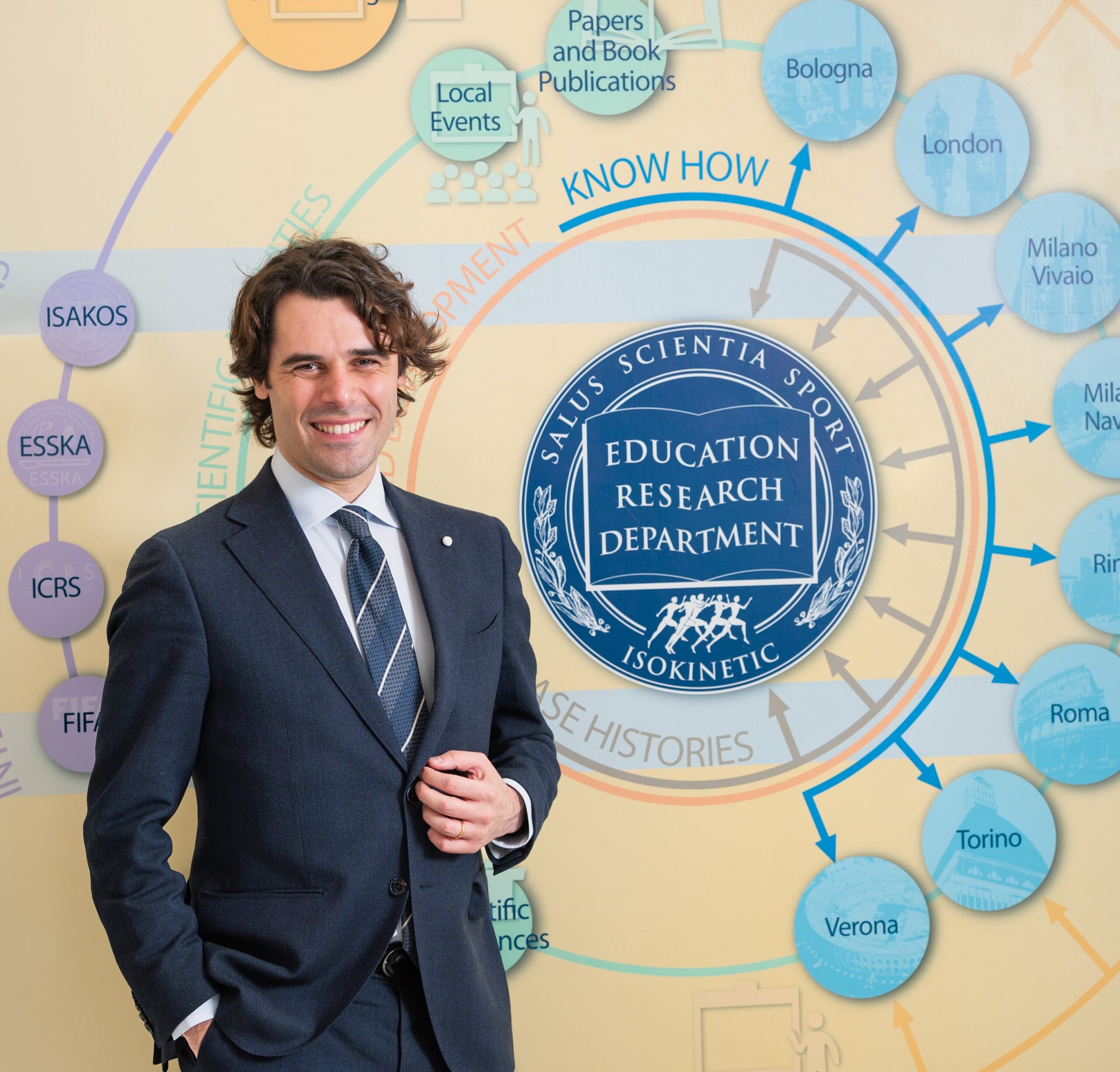
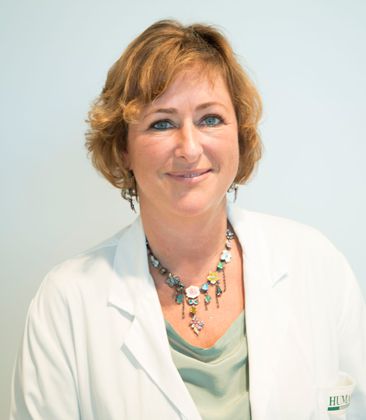
Full Professor of Orthopedic and Trauma Surgery, Humanitas University, Milan (Italy) Chief of Translational Orthopedics Unit, Center for functional and biological reconstruction of the Knee, Humanitas Research Hospital, Milan (Italy)
Director of Residency program in Orthopedic and Trauma Surgery, Humanitas University, Milan
Director of Bone and Joint course, Medical School, Humanitas University, Milan
Director of Musculoskeletal pathology course, Physiotherapy School, Humanitas University, Milan
Director of master’s degree “Regenerative Medicine in Orthopedics” Humanitas University, Milan
Past President of International Cartilage Repair and Joint Preservation Society (ICRS)
President of Società Italiana di Artroscopia, Ginocchio, Arto Superiore, Sport, Cartilagine e Tecnologie Ortopediche (SIAGASCOT)
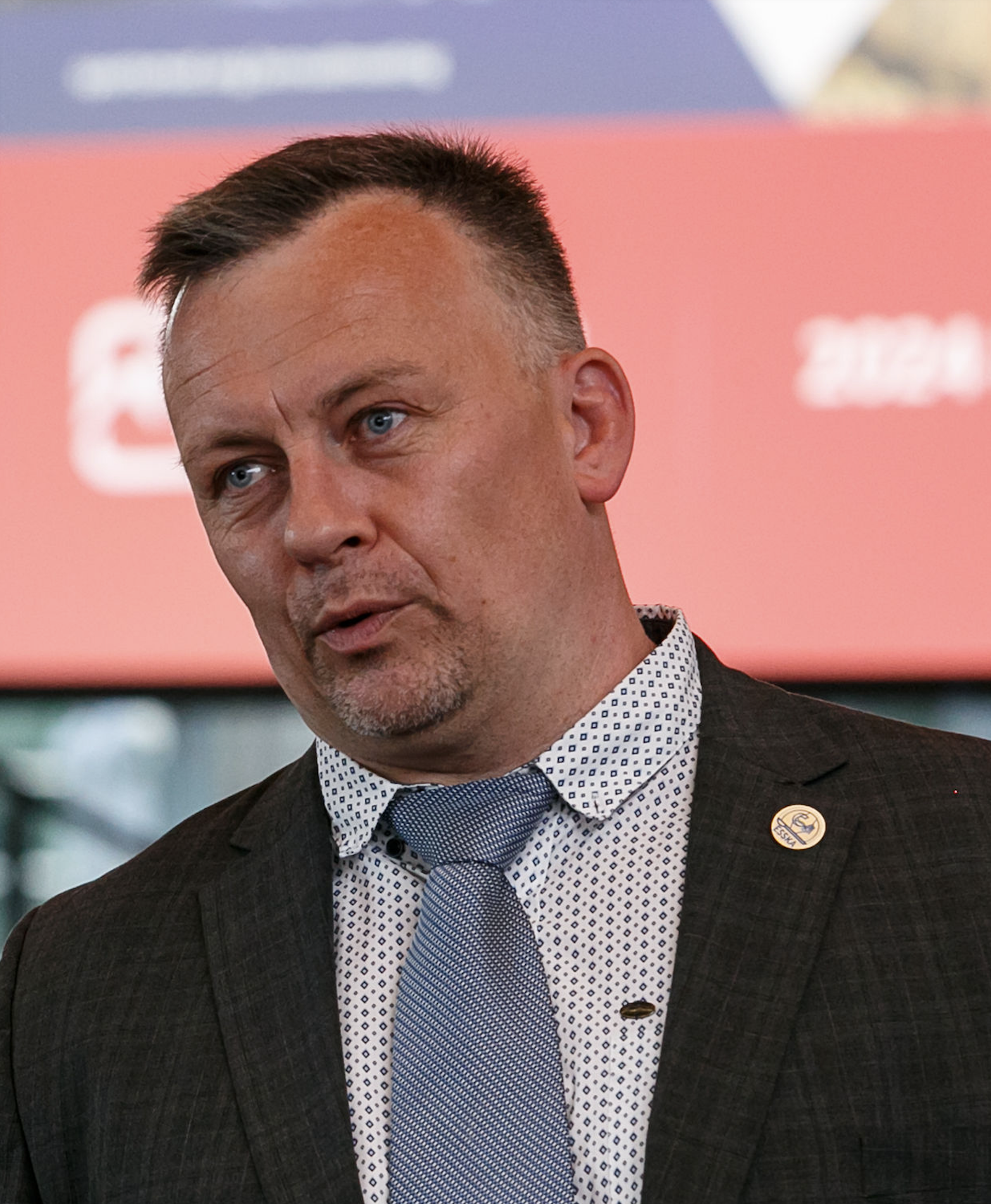
Robert is a physiotherapist from Germany. He finished his master’s degree in physiotherapy in sports at German Sports University Cologne and PhD at Brandenburg University of Technology. Both theses were related to knee injuries and long-term deficits after Anterior Cruciate Ligament Reconstruction.
He is currently the Head of Research at Center of Orthopedics and Traumatology at the Brandenburg University Hospital and Chair of the ESSKA Rehabilitation Committee. He also runs the outpatient clinic for physiotherapy P3 together with is wife. His main interest in research and clinical work is related to athletes with knee injuries.
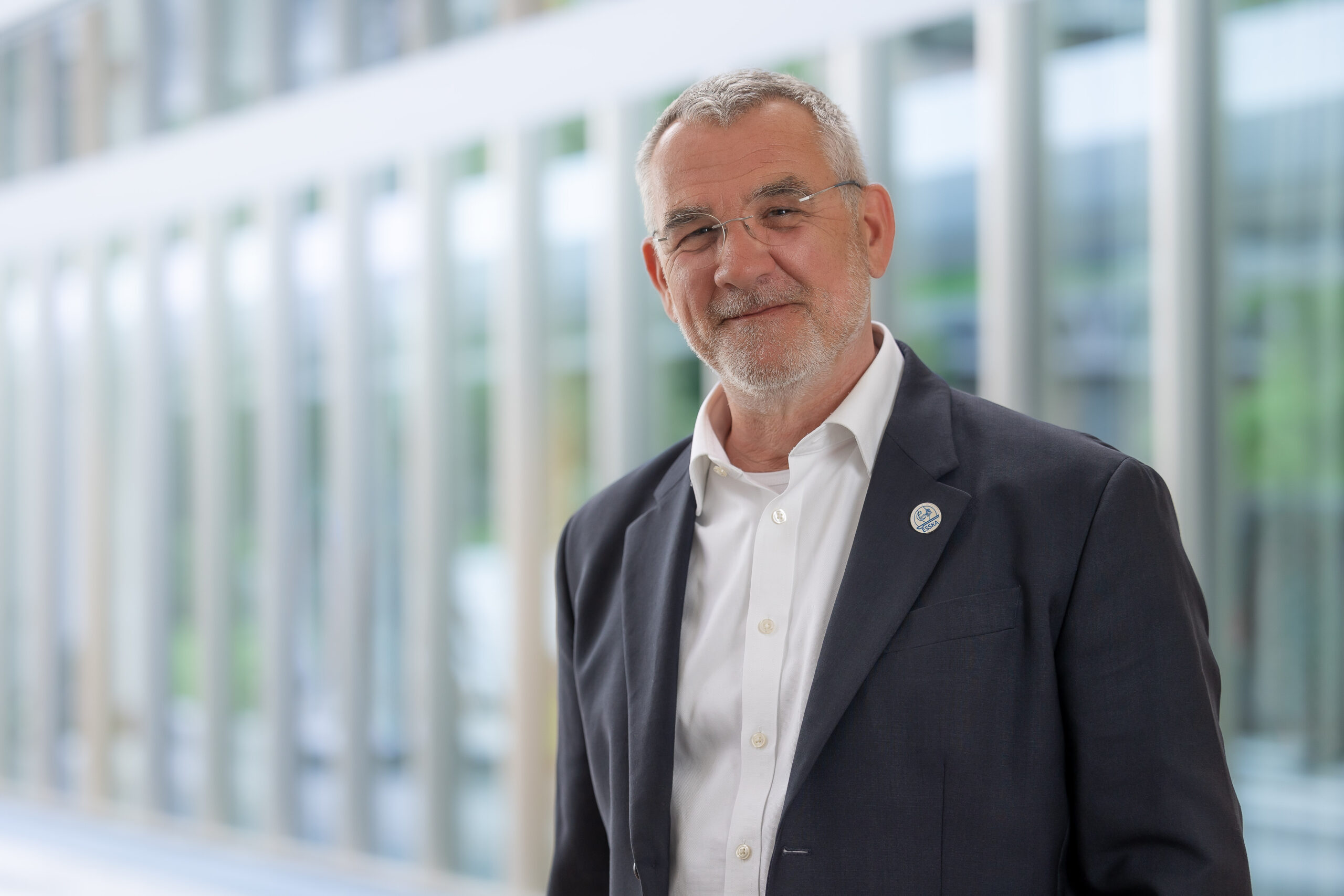
Since his first steps in his career into orthopedics in the mountains of St. Moritz, Switzerland, Tom is fascinated by this small, but cruciate ligament, which has a size of just a bit more than 1 inch (about 2,5 – 3cm) – the acl.
Tom Patt was trained in Switzerland and The Netherlands, with Dr AU Urfer (St Moritz, CH), Dr P Burkart (Luzern, CH), Professor W Mueller, Prof N. Friederich (Basel, CH), Prof. RK Marti (Amsterdam, NL) & dr. Marcel Driessen (Delft, NL).
After heading a private clinic in Delft / The Netherlands for 9 years, he is now working as a consultant at bergmanclinics, Rotterdam / The Netherlands. Tom’s professional interests are sports knee surgery, and he has specialized in mainly arthroscopic knee interventions.
Since 2010, his other real orthopedic passion has been prevention of knee lesions in children and adolescents. In this context he is president of ESMA/ESSKA (2024-26) and co- leads the workgroup for prevention, the GUARDIANS of the ACL (a subgroup of the ACL study group), as well as being member of other European organizations such as the German Knee Society, GOTS, AGA, etc.
The ESMA/ESSKA risk reducing program “prevention for all” was developed by him in collaboration with Dr. Henrique Jones / Portugal.
Tom is often invited to speak at national and international meetings, in 2024 i.e.: Litouwen, Spain, Portugal, Belgium, Czech Republic, The Netherlands & France.
An acl rupture is a life changing event, especially in the young ones & we should do everything to prevent this from happening at all.
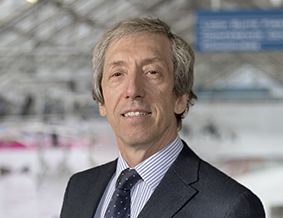
Dr. Gian Luigi Canata is Director of the Centre of Sports Traumatology and Arthroscopic Surgery at Koelliker Hospital in Turin since 1995. He has been a member of the Medical Commission of the Italian Track and Field Federation (FIDAL) from 1980 to 2016 and has served as Director of CUS Torino (University Sports Center) Medical Services for over 40 years, and as Board Member of the Institute of Sports Medicine of Turin since 1990.
From 2001 to 2012, he was engaged as Professor of Sports Medicine at the Turin University, and from 1989 to 2001 as Professor of Kinesiology at the Superior Institute of Physical Education in Turin.
In addition, Gian Luigi Canata has been Director of the Local Medical Commission for the 2007 Turin Winter Universiade.
At an international level, he is an active member of several orthopedic societies, among which ESSKA since 1984, the ESSKA – ESMA section since its early foundation in 2016, within which he served as Chair from 2020 to 2022, and ISAKOS since 1995. He is currently ISAKOS Board Member at Large, past Chair of the Leg, Ankle and Foot Committee, and SIAGASCOT delegate for International Societies.
Gian Luigi Canata has been an invited speaker at medical congresses and courses worldwide, releasing almost 300 lectures. He is actively involved in Orthopaedic Research and Education as an author of more than 100 scientific works (including peer-reviewed articles) and editor of several books including ”Muscle and Tendon Injuries: Evaluation and Management” (2017), “Sports Injuries of the Foot and Ankle” (2019), “Management of Track and Field Injuries” (2022),”Epidemiology of Injuries in Sports”(2022) and “The Running Athlete” (2022). Further, he is also Associate Editor of the ISAKOS Journal since 2021.
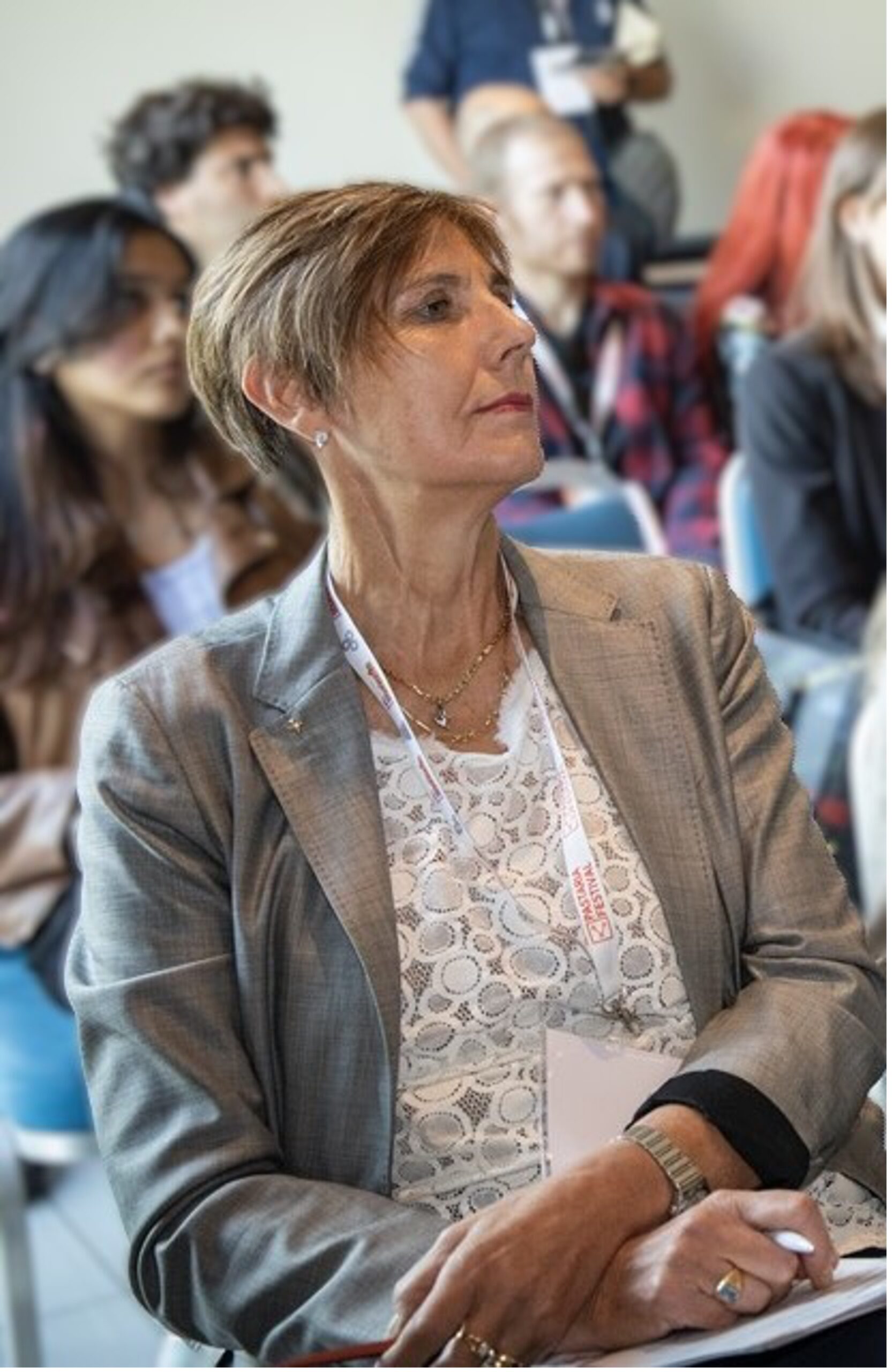
Maria Fiorenza Caboni has been a full professor in the field of Food Science and Technology at the University of Bologna since 2008; her research activity focuses on food quality and safety, with a special focus on lipids. She has been involved in and coordinated several scientific research projects. She is the author of more than 200 publications, most of which are in international scientific journals.
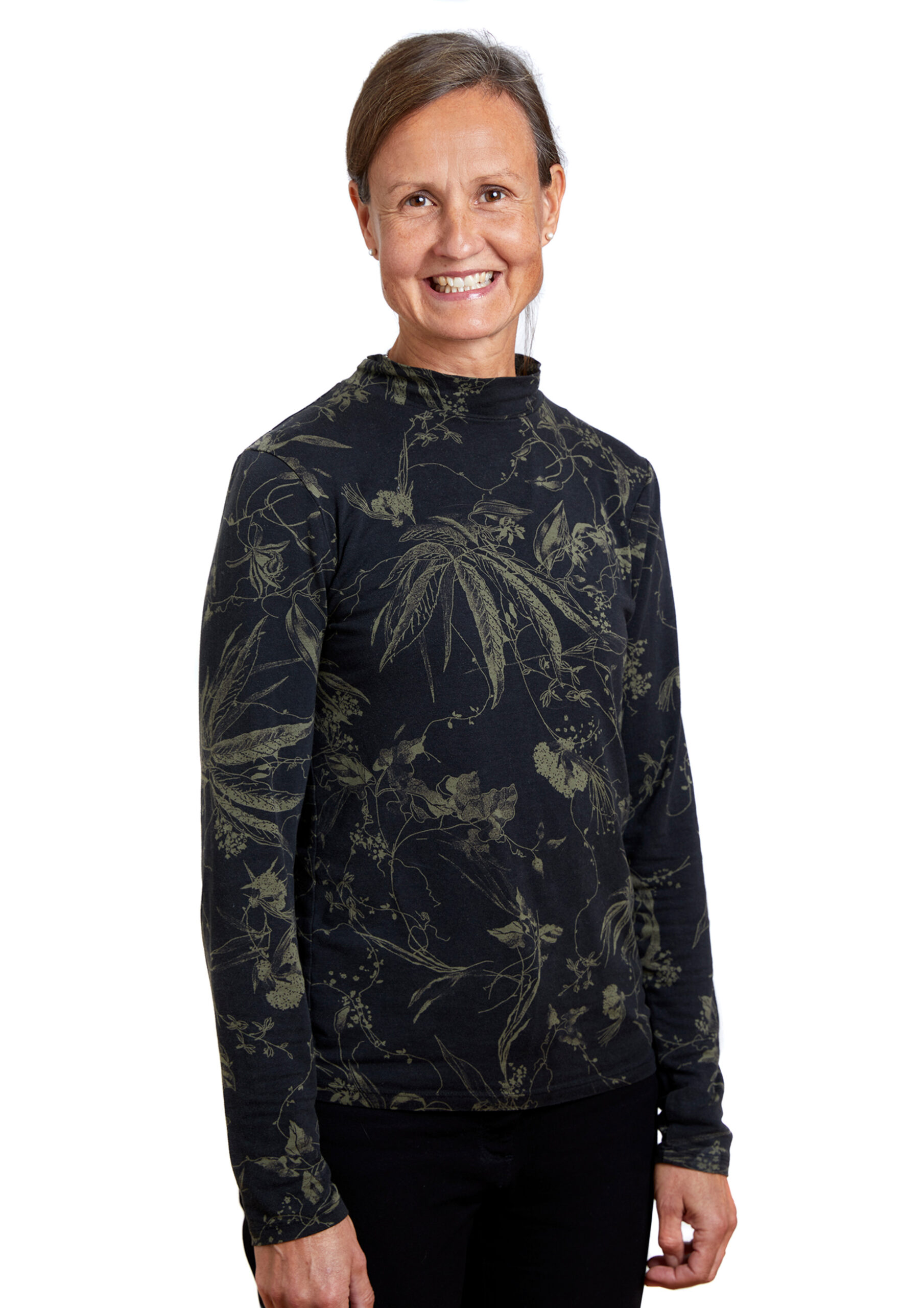
Anna Bjerkefors is an Associate Professor at the Swedish School of Sport and Health Sciences (GIH) and affiliated with the Karolinska Institute. She has a profound interest in research areas such as adapted physical activity, motor control, neuroscience, applied sports science, trunk control, and parasport. Anna’s primary research focus is on understanding the impact of neuromusculoskeletal impairments on daily living activities, leisure time physical activity, and sports, and to optimize the interface with equipment (aids) to maximise performance and minimise injuries. Passionate about translating research into practice, Anna actively implements her findings in the rehabilitation sector and the field of parasport. Since 2022, she has co-led the Swedish Parasport Academy, a synergy project dedicated to creating an innovative environment for physical activity and sports.
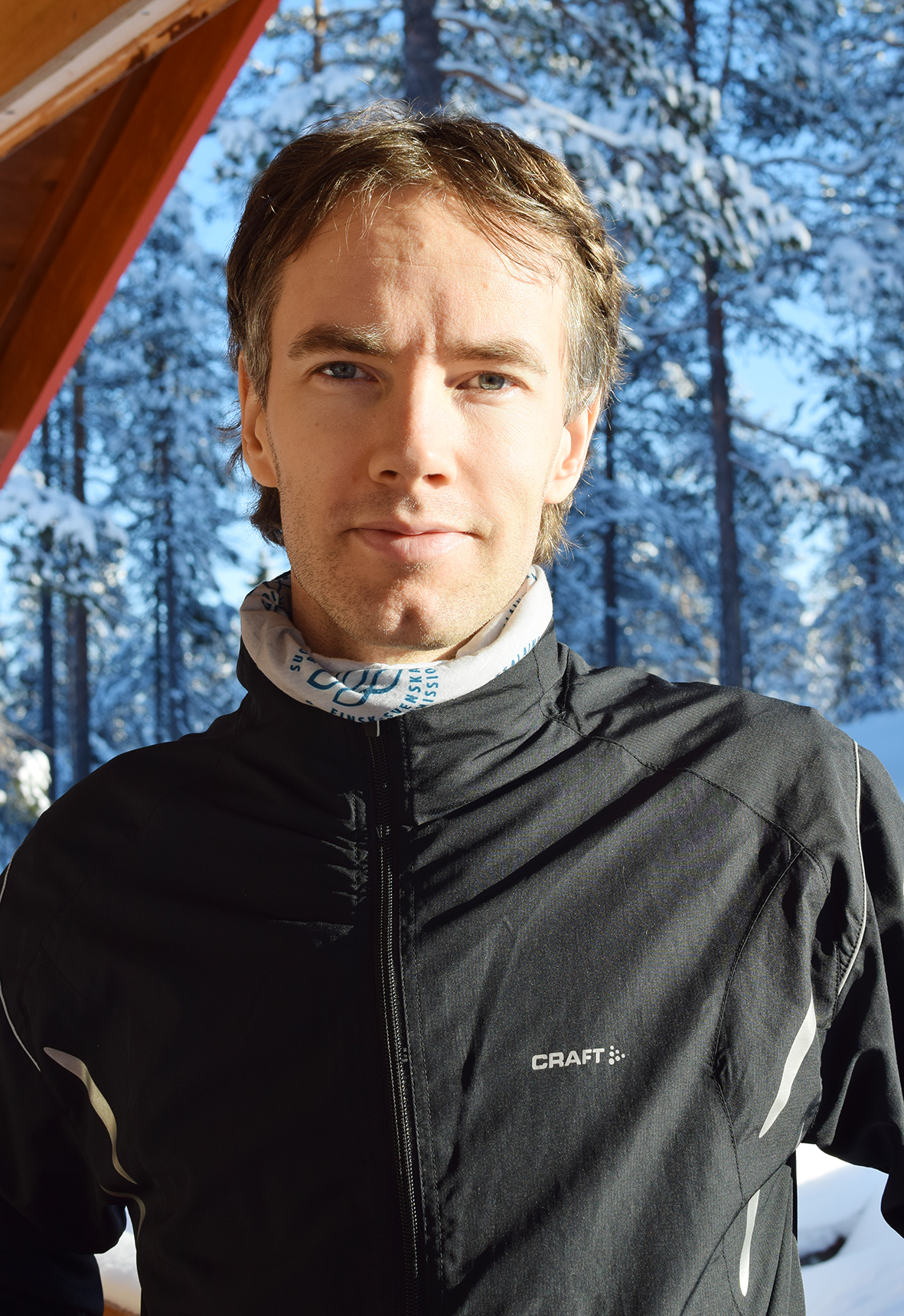
Prof. Svensson conducts research on knowledge issues in sport. He has investigated the historical process of scientization of training methods in endurance sports, and meetings between scientific and experiential knowledge in sports such as football and cross-country skiing. Svensson has a broad interest in issues relating to knowledge, technology and performance in sport, and their implications for athletes and coaches. He has been a Guest Professor at the University of Turin and is also a Research Fellow at the Swedish Olympic Committee. His publications include many books and articles about change and risks in sport and outdoor recreation, including the anthology Sport, Performance and Sustainability (Svensson et al., Routledge, 2023). Svensson is also an engaged and experienced teacher and has worked with a number of courses at Malmö University, KTH Royal Institute of Technology, Chalmers University of Technology, University of Gothenburg and the University of Turin. He has been awarded several prizes for his research and his non-academic writing.
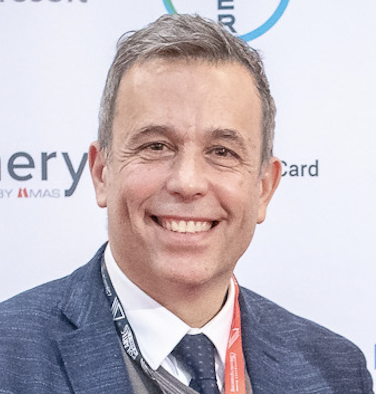
Professor Yannis Pitsiladis has an established history of research into the importance of lifestyle and genetics for human health and performance.
Current research priority is the application of “omics” (i.e. genomics, transcriptomics, metabolomics and proteomics) to the detection of drugs in sport with particular reference to recombinant human erythropoietin (rHuEpo), blood doping and testosterone.
His most recent research is funded by the World Anti-Doping Agency (WADA) and the International Olympic Committee (IOC), he is a member of the IOC Medical and Scientific Commission, a member of the Executive Committee and Chair of the Scientific Commission of the International Sports Medicine Federation (FIMS), a member of the Scientific and Education Commission of the European Federation of Sports Medicine Associations (EFSMA), a member of WADA’s Health Medical Research Committee (HMRC), past member a WADA’s List Expert Group and is a Fellow of the American College of Sports Medicine (ACSM).
He has published over 250 scientific papers, written and edited a number of books and has featured in numerous documentaries (e.g. “Kipchoge: The Last Milestone” is a 2021 documentary film directed by Jake Scott and executive produced by Ridley Scott; “Enhanced” – Documentary Film, 2018. Produced by award winning director Alex Gibney) and popular books (e.g. The Sports Gene: Inside the Science of Extraordinary Athletic Performance; Bounce: The Myth of Talent and the Power of Practice).